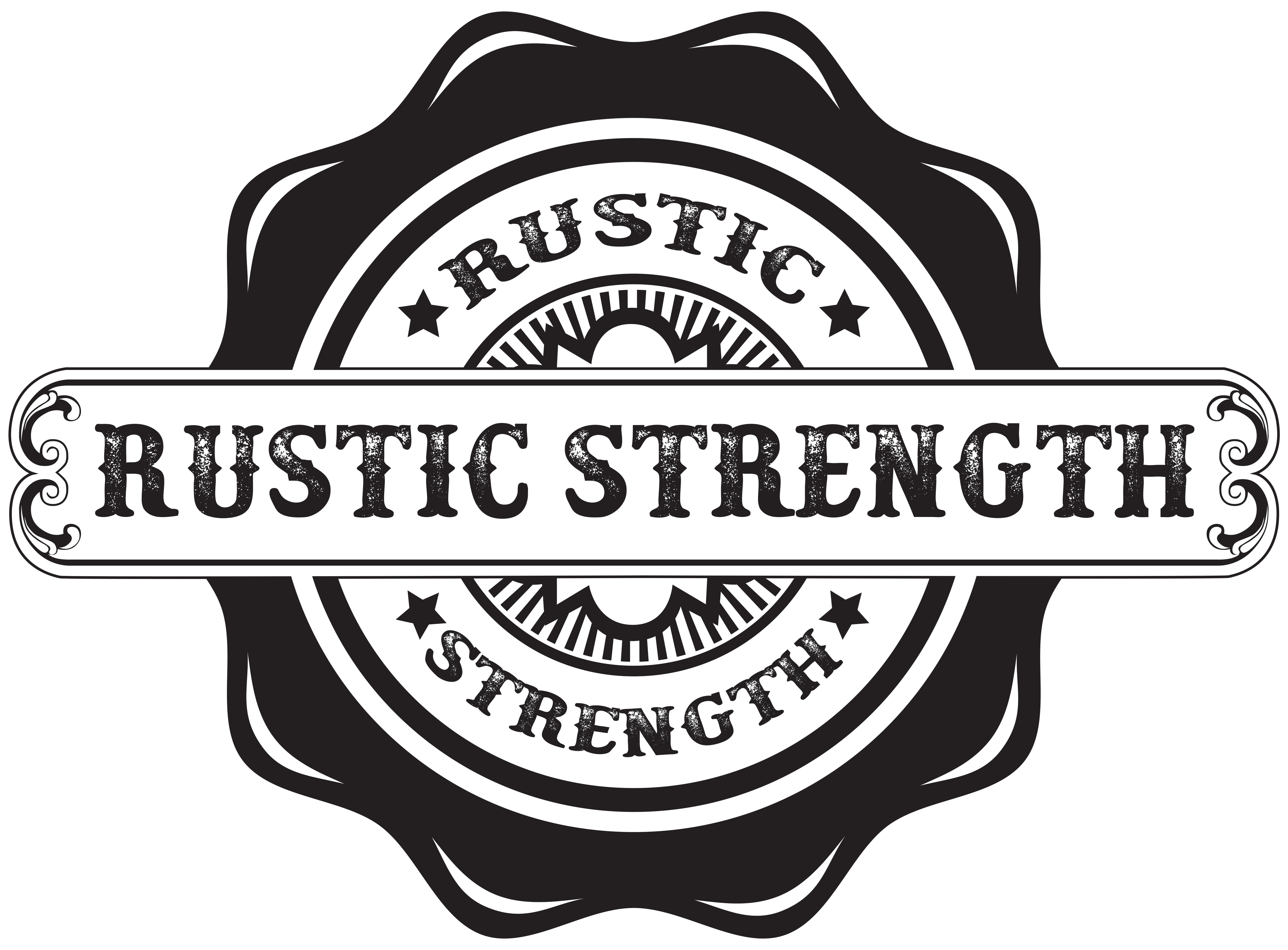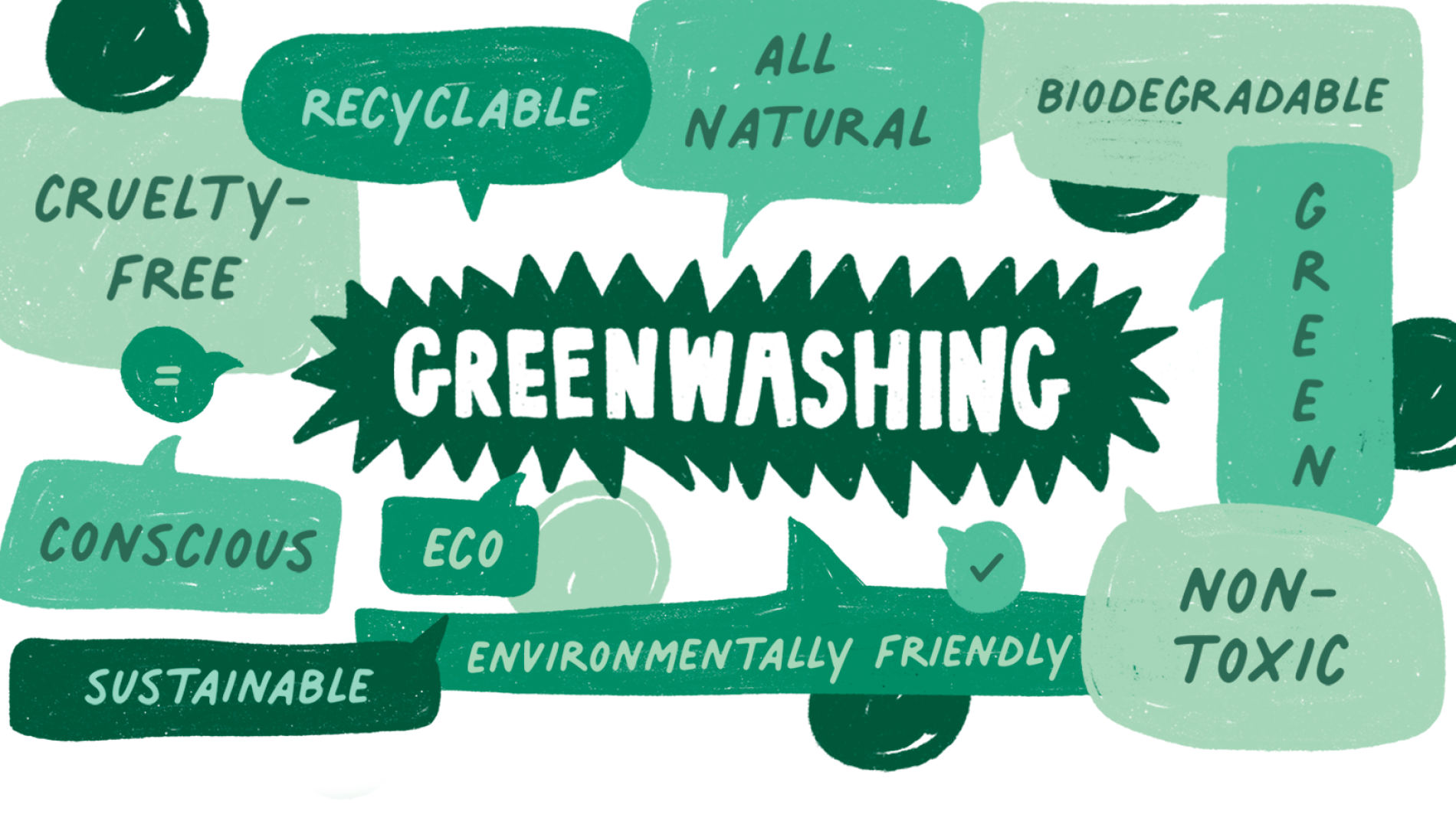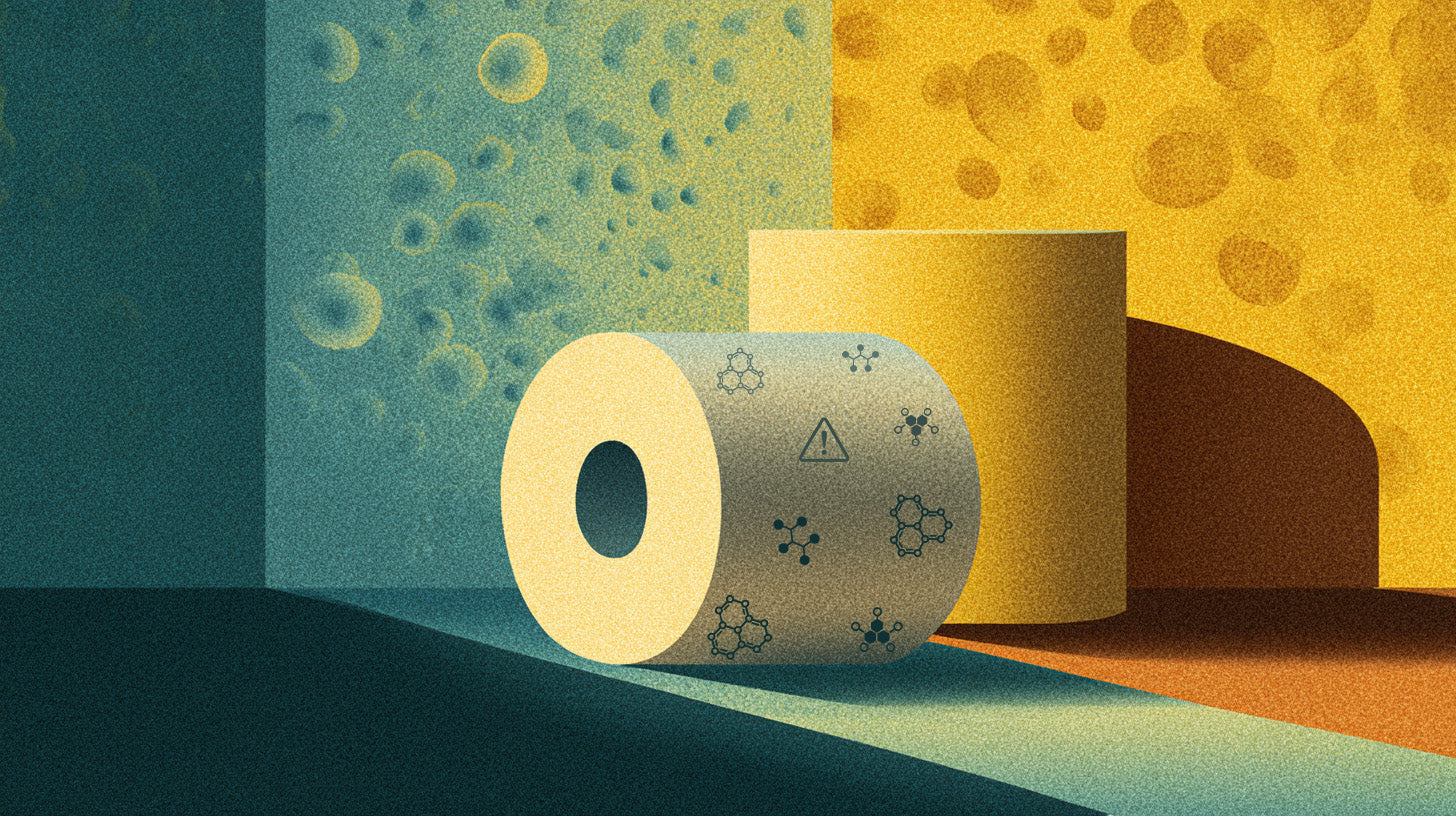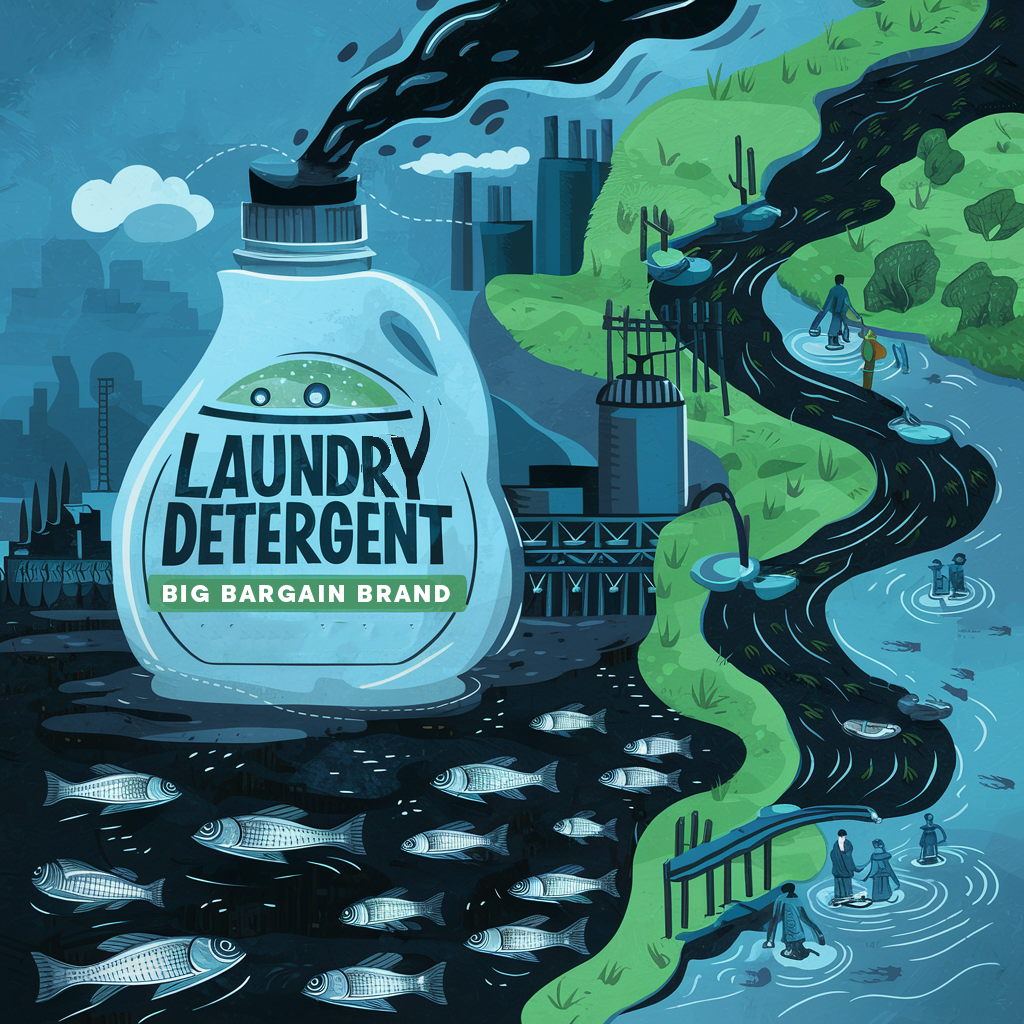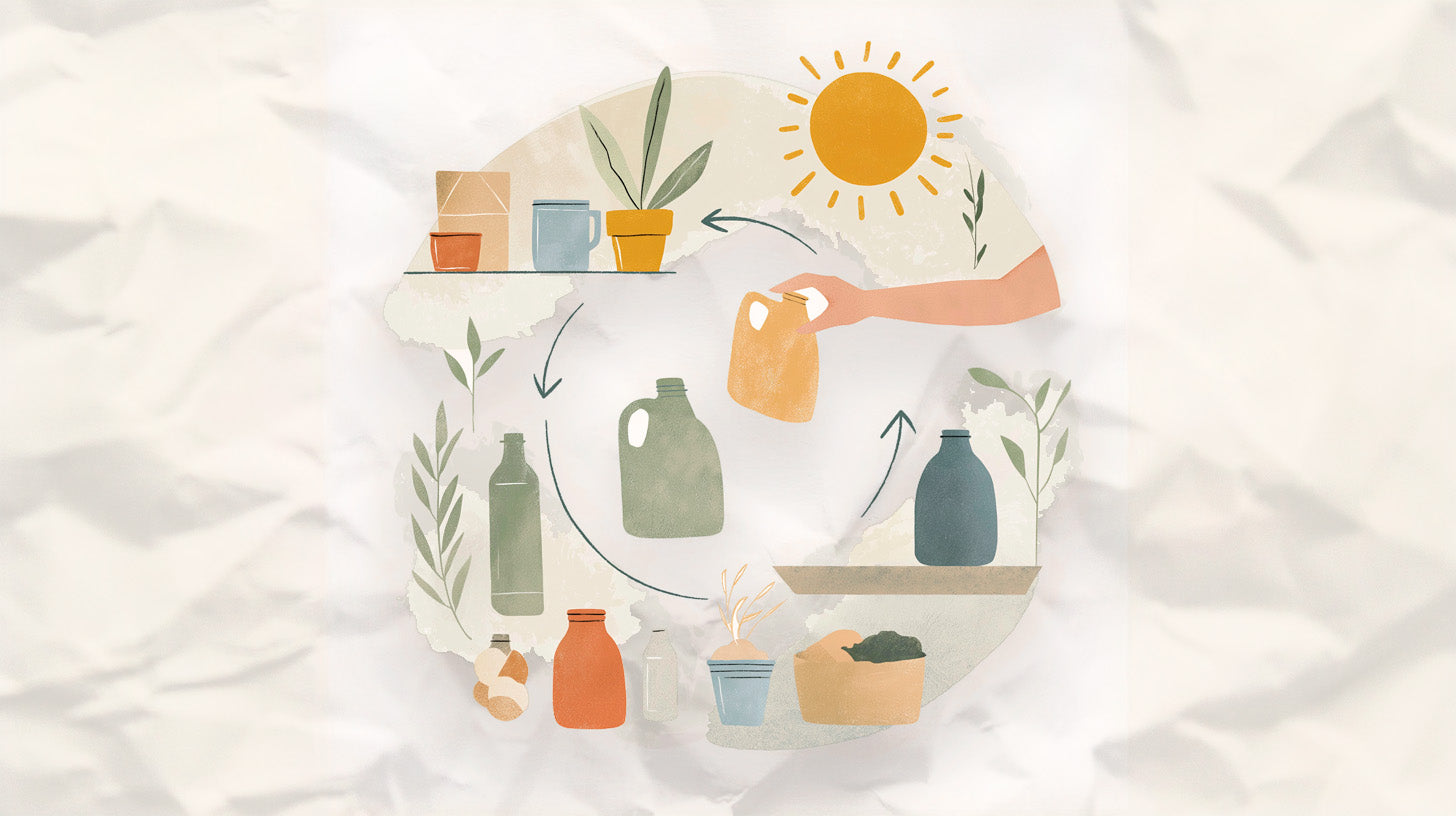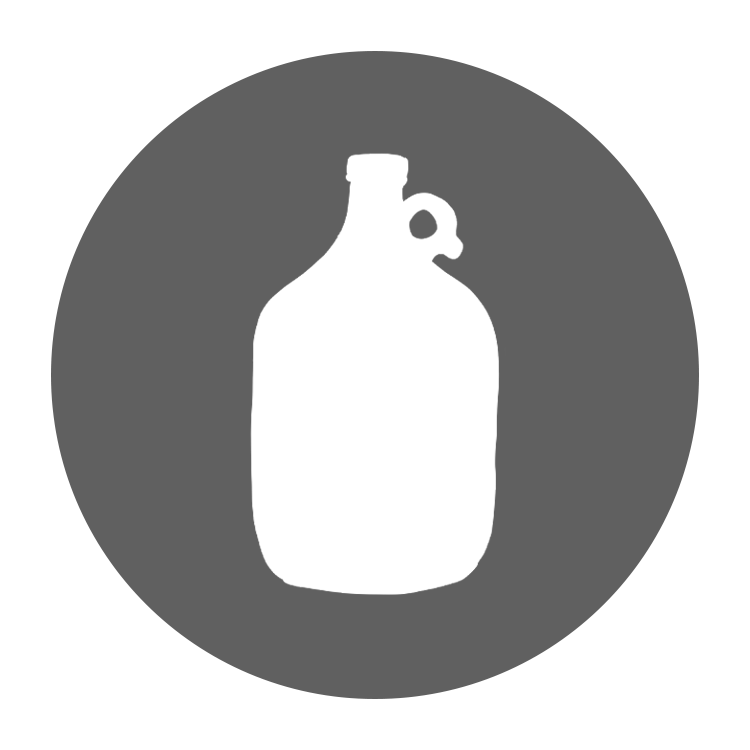What is Greenwashing?
Greenwashing is when a business provides deceptive or misleading information about how their products could be environmentally sound. Many companies will claim their products are “all-natural” or “eco-friendly” without providing proof of sustainability.
What are the types of Greenwashing?
Greenwashing has many types:
- Hidden trade-off: Focusing on one positive environmental attribute while ignoring other significant negative impacts. For example, a product may be made from recycled materials but have a high carbon footprint due to transportation or manufacturing processes.
- No proof: Making vague or unsubstantiated claims without any evidence to back them up. Phrases like "eco-friendly" or "green" can be used without any specific meaning or criteria.
- Irrelevant claims: Highlighting insignificant or irrelevant environmental benefits that don't have a major impact. For example, claiming a product is recyclable but not providing recycling facilities.
- Fibbing: Making outright false or misleading claims about the environmental benefits of a product or service.
- Vague terminology: Using ambiguous or misleading terms that can be interpreted in several ways. For example, the term "natural" can be used to imply a product is environmentally friendly, but it does not have a specific definition.
- False labels: Misusing or creating misleading eco-labels or certifications that give a false impression of environmental responsibility.
- Worshiping false labels: Implying that a product is environmentally friendly simply because it has a generic eco-label, even if the label does not have any specific meaning or criteria.
- Lesser of two evils: Suggesting a product is environmentally friendly compared to a clearly worse alternative, but not actually being a truly sustainable choice.
As a consumer, it's crucial to be aware of greenwashing tactics and conduct thorough research to understand the true environmental impact of a product or service.
How to avoid companies that are Greenwashing?
- Learn the Types: Learn about the several types of greenwashing.
- Consult the FTC Green Guides: These guidelines provide valuable information on truthful and non-deceptive environmental marketing claims.
- Be Wary of Trends and Influencers: Recognize that these can be easily manipulated by companies to promote products that may not be truly sustainable.
- Demand Transparency: Seek out companies that are open and honest about their sustainability practices and the environmental impact of their products.
- Conduct Your Own Research: Investigate companies and their claims. Look for evidence to support their claims and be critical of vague or unsubstantiated information.
- Make Informed Choices: Use your knowledge to make conscious purchasing decisions that support sustainable practices and minimize your environmental impact.
| Educate Yourself | Consult the FTC Green Guides | Trends and Influencers | Demand Transparency | Research | Make Informed Choices |
| Learn about the many different types of Greenwashing | Refer to the FTC Green Guide to recognize deceptive marketing tactics | Refuse to be easily influenced | Seek companies that are honest and open about their sustainability | Investigate claims made by companies | Use your knowledge to make the best choice |
We encourage you to learn about harmful chemicals and make informed choices, even if you don't choose Rustic Strength products. By demanding transparency and prioritizing health and sustainability, you can play a crucial role in creating a healthier future for yourself and the planet.
Here at Rustic Strength, we position ourselves as a company that is genuinely committed to sustainability, prioritizing transparency, using safe and sustainable materials, and actively working to minimize our environmental impact.
If you would like to learn more about how Rustic Strength is sustainable and transparent visit our page Rustic Strength Sustainability Practices.

We invite you to do your own research!
Scientific journals and articles are the foundation of evidence-based decisions at Rustic Strength. Blogs can provide helpful information. However, if it can not cite scientific articles, its claims stand on little.
Ethical labels for organic and natural cosmetics
https://www.ethicalconsumer.org/health-beauty/ethical-labels-organic-and-natural-cosmetics
What is Greenwashing?
https://www.investopedia.com/terms/g/greenwashing.asp
Types of greenwashing
https://theroundup.org/greenwashing-explained-examples/
